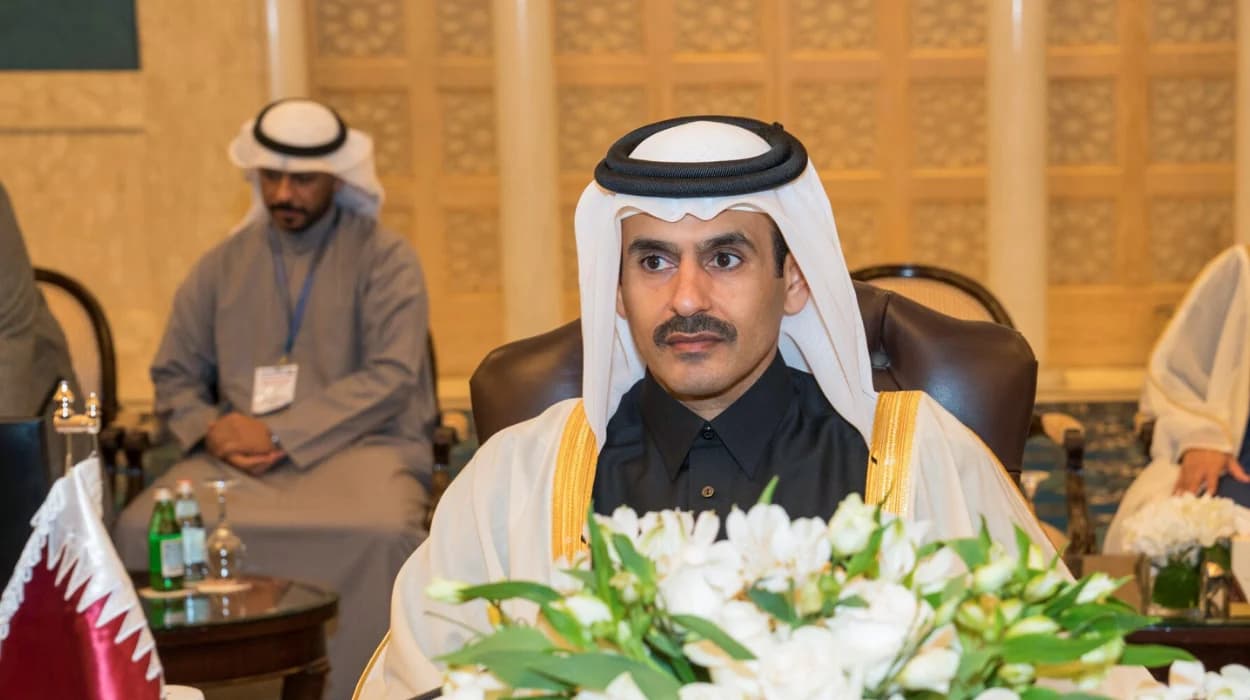Qatar's Prime Minister Sheikh Mohammed bin Abdulrahman Al Thani received
ministers participating in the Gas Exporting Countries Forum (GECF),
highlighting ongoing cooperation and discussions around global gas market
stability. The meeting reinforced Qatar's role as a key gas exporter and its
commitment to dialogue and coordination among member countries.
Qatar Hosts Gas Exporting Countries Forum Ministers
Qatar's Prime Minister Sheikh Mohammed bin Abdulrahman Al
Thani held a significant meeting with the ministers participating in the Gas
Exporting Countries Forum (GECF), according to a report by Reuters journalist
Ahmed Hussein. This gathering underscores Qatar's pivotal role in the global
natural gas market and serves as a platform for fostering cooperation among
major gas-exporting nations to address common challenges and market
developments.
As reported by Ahmed Hussein of Reuters, the meeting
involved discussions centered on enhancing collaboration among member nations,
stabilising the gas market, and ensuring sustainable growth. Sheikh Mohammed
bin Abdulrahman Al Thani emphasised the importance of solidarity and
coordination among the forum's member countries to maintain the balance of
supply and demand in the gas industry.
Focus on Market Stability and Sustainable Development
The Prime Minister highlighted Qatar’s commitment to continuing its leadership within the GECF. As stated by Hussein, Sheikh Mohammed said,
“Qatar remains dedicated to working with our partners in the Gas Exporting Countries Forum to promote market stability and support sustainable development across the gas sector.”
This aligns Qatar with its broader economic
and environmental goals as a leading hydrocarbon exporter.
The forum's ministers exchanged views on global energy
dynamics, pricing trends, and the future demand outlook for natural gas, which
remains a critical resource amid global energy transitions. According to
Hussein, the officials considered strategies for enhancing cooperation to face
potential challenges such as geopolitical tensions and fluctuating market
conditions.
Strategic Role of Qatar in Global Gas Exports
Established as one of the world’s largest liquefied natural
gas (LNG) exporters, Qatar's role in the GECF meeting is fundamental. The forum
acts as a collective voice aiming to strengthen gas-exporting countries'
positions in the global energy market. As outlined by Reuters’ Ahmed Hussein,
the ministers acknowledged Qatar’s leadership and the country’s advanced
production capabilities, which contribute significantly to global gas supply
security.
The GECF meeting also included discussions on expanding
investments in infrastructure and technology to improve gas production
efficiency. The ministers expressed their intent to collaborate on innovation
and environmental sustainability, reinforcing commitments to cleaner energy
production methods.
International Reactions and Media Coverage
The meeting has been covered by several media outlets with a
focus on Qatar's diplomatic and economic influence within the energy sector. As
reported by Gulf Times correspondent Aisha Al-Mansoori, the event signifies
Qatar’s strategic approach to consolidating its alliances with gas producers
globally while navigating the complexities of international energy markets.
Various statements from the forum highlighted the importance of multilateral cooperation. GECF Secretary-General, Yury Sentyurin, noted, as per Al-Mansoori’s writing,
“The forum provides an essential space for dialogue and coordination, ensuring the gas market's resilience and adaptability to changing global trends.”
Qatar’s Sustained Commitment to Gas Market Leadership
Summarising the meeting, the Prime Minister reiterated
Qatar’s enduring role in promoting unity and cooperation among gas-exporting
countries. The engagement of ministers at the GECF hosted by Qatar reflects the
forum’s increasing relevance in addressing energy challenges amid global shifts
towards cleaner and more sustainable energy supplies.
This event solidifies Qatar’s status not only as a leading LNG exporter but also as a diplomatic hub for international energy cooperation and policy formation, facilitating ongoing multinational efforts to stabilise and develop the global gas market.
